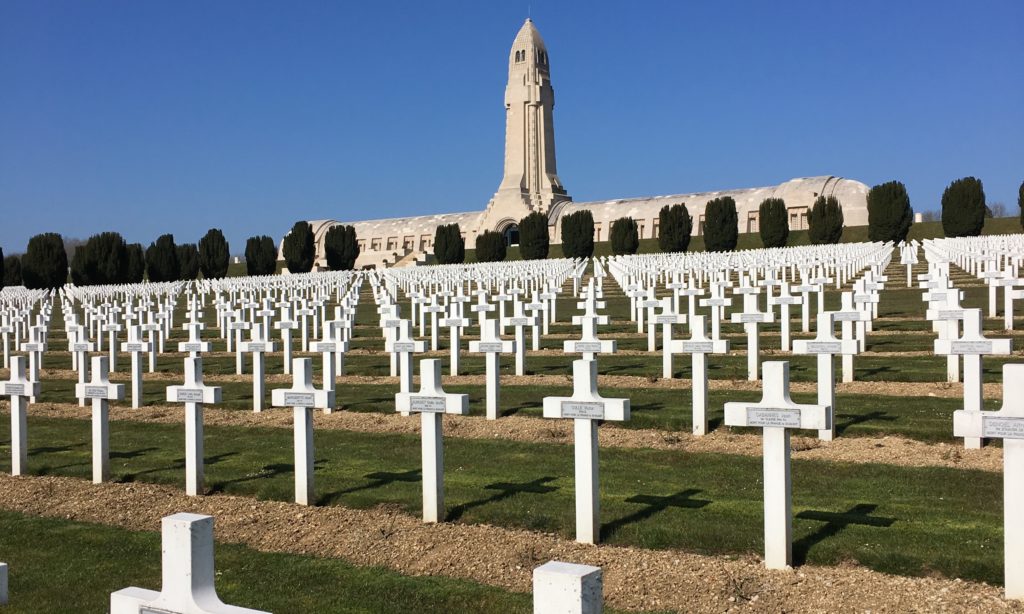Julie Berry‘s great new YA novel, The Lovely War, begins during World War II when the goddess of love, Aphrodite, is caught cheating on her husband, Hephaestus, with none other than the god of war, Ares. To exonerate herself, she tells stories about love and war. Why is it that love and war are so intimately connected, and which prevails?
Both of Aphrodite’s stories take place during World War I. The first features James and Hazel, an English soldier and pianist who meet and fall in love just as war is breaking out. The other story features Aubrey, an African-American soldier and musician, and Colette, the Belgian woman with whom he falls in love during the war. All four characters are brought together in the music room at the YMCA in France.
Aubrey is a fascinating character through which to examine the American army’s history of racism, and I found this historical aspect one of the most compelling elements of The Lovely War. I also enjoyed Berry’s portrayal of soldiers’ lives and the harsh realities they faced during combat. It reminded me of the cemeteries in Verdun, France and the thousands of graves that mark the lost generations buried there.
Berry wrote the book for young readers in part to highlight the legacy of war and the power of love. As she states in her afterword, “the memory of the price they all paid, and their children paid in the following brutal war, should give us pause. It lies in our power, in ways large and small, public and private, to be agents of healing, hope, justice, plenty, and peace.”

